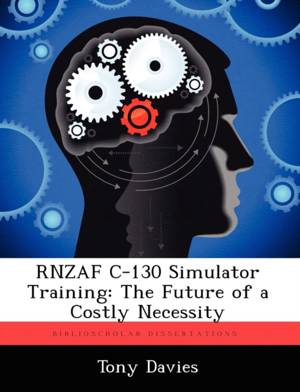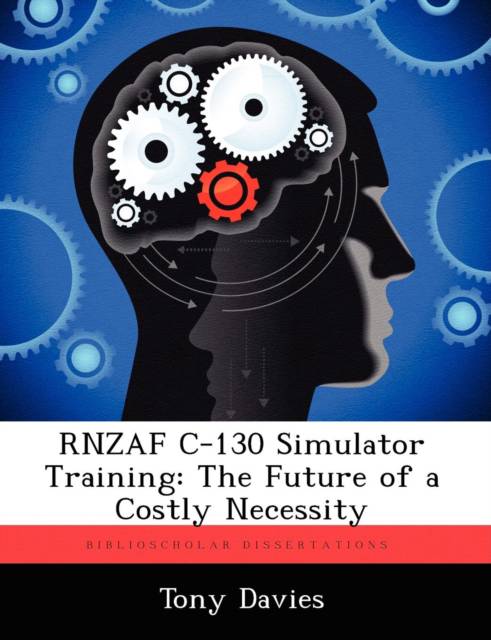
- Afhalen na 1 uur in een winkel met voorraad
- Gratis thuislevering in België vanaf € 30
- Ruim aanbod met 7 miljoen producten
- Afhalen na 1 uur in een winkel met voorraad
- Gratis thuislevering in België vanaf € 30
- Ruim aanbod met 7 miljoen producten
Zoeken
€ 54,45
+ 108 punten
Omschrijving
This paper aims to assist the RNZAF in realizing that some long-term strategic decisions are required about the future of its C-130 training. At present, there exists a disturbing trend showing pilot experience, aircraft continuation training, and simulator refresher training to be decreasing insidiously. Most of this is due to budgetary constraints, which have reduced resources to a bare minimum. The current simulator-training scheme is too expensive to yield the required minimum frequency for refresher training and new ways must be identified to enable more training for less cost. This paper reviews the rational for using flight simulators and then compares the RNZAF with other air forces to assess whether its C-130 pilots are fulfilling the minimum level of simulator training recommended by those countries.
Specificaties
Betrokkenen
- Auteur(s):
- Uitgeverij:
Inhoud
- Aantal bladzijden:
- 60
- Taal:
- Engels
Eigenschappen
- Productcode (EAN):
- 9781249831570
- Verschijningsdatum:
- 17/10/2012
- Uitvoering:
- Paperback
- Formaat:
- Trade paperback (VS)
- Afmetingen:
- 189 mm x 246 mm
- Gewicht:
- 127 g

Alleen bij Standaard Boekhandel
+ 108 punten op je klantenkaart van Standaard Boekhandel
Beoordelingen
We publiceren alleen reviews die voldoen aan de voorwaarden voor reviews. Bekijk onze voorwaarden voor reviews.











